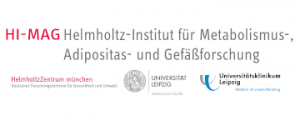SaxoChiLD provides optimal infrastructure conditions for basic and clinical research with a broad range of state-of-the-art facilities and laboratories.
Environmental Monitoring
As a world-leading center in environmental research, the Helmholtz Centre for Environmental Research develops technologies that are highly relevant to SaxoChiLD, such as the analysis of chemicals and their mixtures in biomaterial samples (blood, urine, feces, swabs). Functional studies using in vitro systems and animal models dissect the mechanistic effects of chemicals and mixtures, providing improved risk assessment. In addition to biomonitoring, sentinel monitoring is supported by GPS tracking of movements within urban areas.
Chemicals In The Environment Profiler CITE-PRO
CITEPro is a high-throughput platform for sample preparation, automated exposure of reporter cells and aquatic organisms, automated analysis of concentrations, and effects of chemicals and chemical mixtures derived from environmental and human samples.
Core Unit IMMU Department
The core unit of the
Department of Environmental Immunology includes live cell microscopy, 25-parameter flow cytometry, sorting, organoid and complex cell culture, molecular biology chip platform.
ProVis - Centre for Chemical Microscopy
ProVis enables high-tech visualization and quantification of microbially mediated processes in natural and polluted environments. In situ analysis of the identity and function of microorganisms and how single cell metabolism is impacting the ecosystem.
Remote Sensing Center for Earth Research
The
Remote Sensing Center for Earth Research is a recently established joint platform with four dedicated professorships for innovative research on the earth system by means of remote sensing.
Terrestrial Environmental Observatories
TERENO is a national network of observatories for integrated earth and climate observation, studying regional impacts of global change on terrestrial environmental systems and consequences for social and economic interactions. Complemented by professional software for operational model-based projections.
Visualization of Terrestrial Environments
The
Vislab at UFZ fosters knowledge transfer in the scientific community as well as among the general public with 3D-visualization of measurements and simulations. This includes the graphical presentation of geoscientific models to improve the dialogue between scientists, study participants, and decision-makers.
Biomedical Facilities & Platforms
University Leipzig, Technische Universität Dresden and Helmholtz Centre for Environmental Research have established state-of-the-art infrastructures for a broad range of clinical and experimental research, including cutting-edge technology for omics applications, metabolic and immunologic phenotyping, imaging, electrophysiology, cell reprogramming, and gene targeting.
Human Neuroimaging
Technische Universität Dresden has two neuroimaging facilities exclusively for research (
NIC and CarusNIC), each with a 3 Tesla MRI scanner. The NIC is equipped with an MRI compatible 64-channel electroencephalography (EEG) system, an MRI compatible EDA device for skin conductance measurements, an electrocardiography (ECG) device, pulse oximetry system and transcranial magnetic stimulation (TMS). CarusNIC includes fMRI and multi-nuclear MR spectroscopy. Similarly, Leipzig University hosts a
3 Tesla MRI scanner and Leipzig is furthermore well equipped with state-of-the-art neuroimaging facilities at the
Max Planck Institute for Human Cognitive and Brain Sciences, which offers a 3 Tesla MRI, a 7 Tesla MRI, and a one-of-its-kind
connectome scanner.
Human Electrophysiology Lab
Several EEG labs (64, 96 and 128 channels; eye tracking), artificial intelligence data analysis pipelines, MEG-lab, (f)NIRS lab, devices for transcutaneous vagus nerve stimulation (tVNS), transcranial direct/alternative current stimulation (tDCS/ACS), neuronavigated transcranial magnetic stimulation (TMS), ultrasound, and haptic research facility, are located at Technische Universität Dresden (e.g.
Action Lab &
Labs of Faculty of Psychology) and the
Max Planck Institute for Human Cognitive and Brain Sciences alike.
Psychophysics Neurocognitive Lab
Within the Excellence-Cluster
CeTI, a Multisensory Virtual Reality Lab equipped with two LiveAmp 32-channel wireless (mobile) EEG systems and one NIRS system is provided at the Technische Universität Dresden
Stem Cell Engineering Facility
The
Stem Cell Engineering facility at Technische Universität Dresden provides cutting-edge technologies and expertise for induced pluripotent stem cell research, including reprogramming and genome engineering.
Animal Facilities, Transgenic Facilities
Large-capacity animal facilities (mice, zebrafish); equipment for animal research, including high frequency ultrasound, blood pressure devices, MRT, whole-body fluorescence imaging, 2-photon in vivo microscopy, metabolic cages including the development of
specialized software. Transgenic technology for generation of gene-targeted mice and zebrafish. Such facilities are, among others, hosted at the
Saxonian Incubator for Clinical Translation.
Next Generation Sequencing
Next Generation Sequencing – State-of-the-art technology for various NGS applications with bioinformatic analysis; transcriptomics (mRNAseq, miRNAseq, aptamer-seq), (epi) genomics (ChIP-seq, ATAC-seq), targeted resequencing, whole exome or whole genome sequencing, de novo sequencing of diverse species and single-cell sequencing.
Next Generation Sequencing and Whole Exome Sequencing
Next Generation Sequencing and Whole Exome Sequencing
The research laboratory
endogenet at Leipzig University applies state-of-the-art methodology in Next Generation Sequencing and Whole Exome Sequencing for patients with short stature and pituitary diseases involving various patterns of hormone deficiencies.
Single-Molecule Array
SIMOA Quanterix technology for automated single and multiplex detection of biomolecules with ultra-sensitivity.
Biomolecular Synthesis Facility
High-quality peptide services ranging from
biomolecular synthesis and modifications to high throughput peptide array synthesis.
Imaging Platforms
Comprehensive technologies for imaging applications; light/ confocal/electron microscopy, micromanipulation, live-cell imaging, FRET/FRAP, fluorescence cross-correlation spectroscopy, 2-photon microscopy for in vivo imaging, atomic force microscopy, total internal reflection, confocal and super-resolution fluorescence imaging.
Institute for Drug Design
The Institute for Drug Design (Institut für Wirkstoffentwicklung;
https://www.uniklinikum-leipzig.de/Seiten/mf-institute.aspx) at the University of Leipzig integrates innovative, computer-aided approaches for therapy design and drug production with experimental validation and optimization. They develop and use new algorithms for the extraction and development of active pharmaceutical ingredients and so-called biologicals such as antibodies or vaccines.
Rudolf Boehm Institute for Pharmacology and Toxicology
The Rudolf Boehm Institute for Pharmacology and Toxicology (
https://research.uni-leipzig.de/pharma/) at the University of Leipzig hosts a screening platform to identify biological effects of compounds from chemical libraries.
Leipzig Research Center for Child Development
At Leipzig University’s Faculty of Education, the Leipzig Research Center for Early Child Development (LFE) is dedicated to early child development including linguistic, cognitive and emotional processes. Addressing questions of the psycho-social development, as well as cultural differences, the LFE aims at supporting the development of children to their full potential.
Research & Training Child Care Center
The
kindergarten with a research profile of the Faculty of Education at Leipzig University will be part of the research infrastructure of the Leipzig Research Center for Early Child Development. The kindergarten program will offer new unique possibilities from a scientific point of view.







